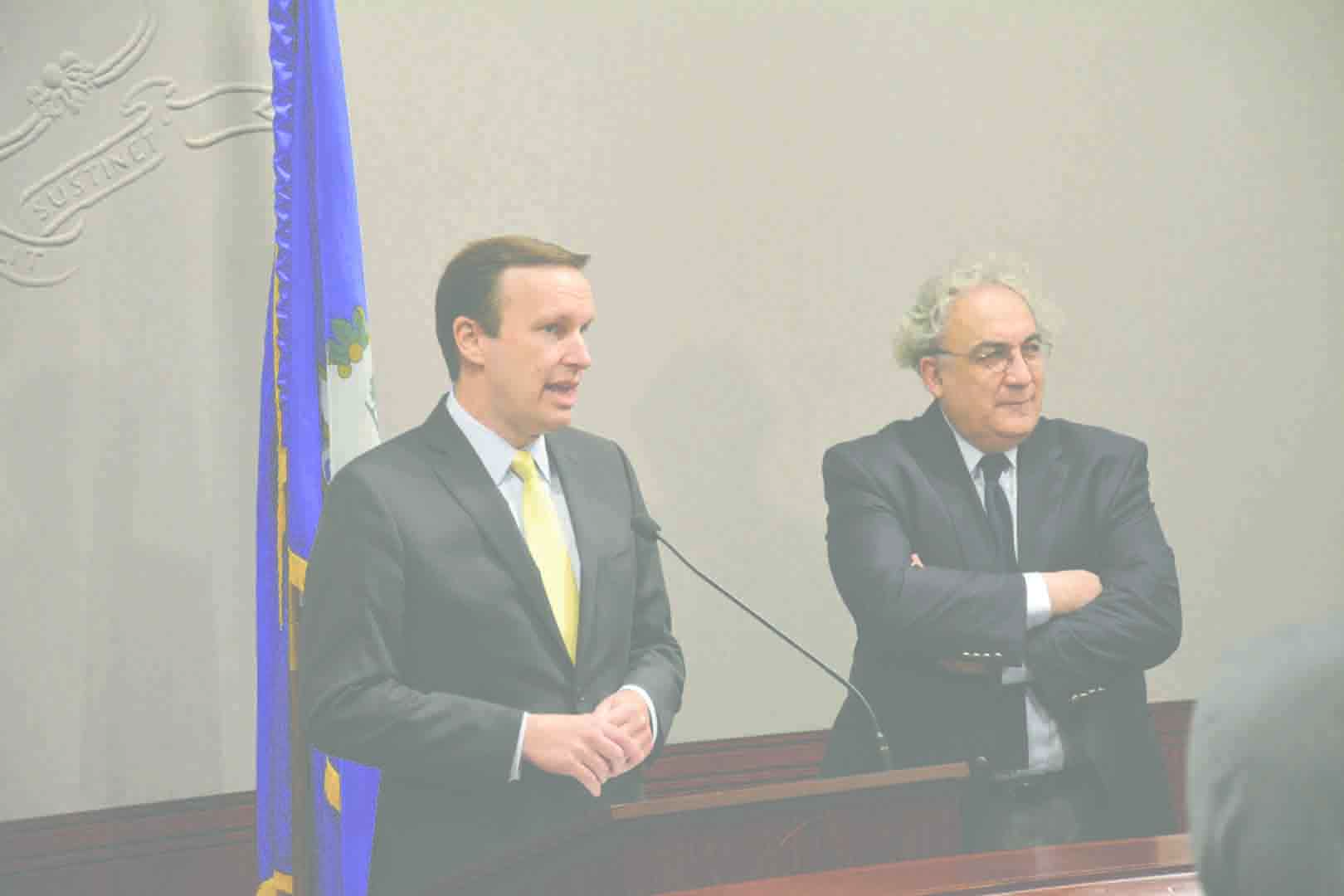
Office of Senator Chris Murphy
With United States-North Korea relations growing tenser by the day, Yale professor Abbas Amanat joined Senator Chris Murphy, D-Conn., in Hartford on Wednesday to condemn the approach of President Donald Trump’s administration to nuclear proliferation around the world.
In recent weeks, Trump has repeatedly made comments suggesting the U.S. would consider military action if North Korea did not limit or end its nuclear program. Murphy, a member of the Senate Foreign Relations Committee, asserted that these threats only served to escalate the situation.
“The combination of amateurism and braggadocio that this administration has shown with respect to the North Korean nuclear crisis threatens this country’s national security,” he said.
Murphy noted that North Korea is rapidly advancing its nuclear capabilities and may soon possess an intercontinental ballistic missile–mounted nuclear weapon. Stressing the human cost of a potential war and the need for a diplomatic solution, Murphy said that Trump’s tweeting had undermined Secretary of State Rex Tillerson in his efforts to negotiate a compromise.
Furthermore, Murphy called Trump’s threats to decertify the Iranian nuclear agreement potentially “catastrophic.”
In the 2015 nuclear deal, Iran agreed to stop developing nuclear weapons and allow international inspection of its nuclear facilities. In exchange, the United States and other countries agreed to lift economic sanctions. Trump has made opposition to the deal, which he believes will not prevent Iran from becoming a nuclear power, a central part of his policy platform.
If the U.S. were to re-impose sanctions on Iran, “we would get all of the downside, and Iran would get all of the upside,” Murphy said.
“The Iranians would get the benefit of economic activity with the Europeans, a restart to their nuclear program and they would come out looking like the victim because it was the United States that violated the terms of the agreement,” he explained.
Murphy added that withdrawing from the nuclear deal would damage America’s international credibility. Circling back to the North Korean crisis, Murphy said pulling out of the Iranian nuclear deal would show North Korean leader Kim Jong-Un that the U.S. cannot be trusted to uphold future agreements.
Professor Nuno Monteiro, director of International Security Studies at Yale, seconded Murphy’s reasoning. Decertifying the deal would “undermine the president’s leadership ability in the international realm” and damage the nation’s moral authority, he said.
Monteiro also corroborated Murphy’s assertion that Trump was aggravating the North Korean situation. Trump’s pronouncements on Twitter and to reporters that this is the “calm before the storm” may lead Pyongyang to believe that war is inevitable, he noted, adding that Trump does not seem to understand the nuances of nuclear deterrence.
“When facing an adversary that has nuclear weapons, the last thing you want to do is to get them to feel pushed against the wall,” he said.
Amanat discussed possible Iranian reactions to decertification of the nuclear deal. He argued that trying to isolate Iran further via the restoration of sanctions would push Iran away from the U.S. and toward U.S. adversaries like Russia and China.
The moderate government currently in place in Iran would be seriously undermined if the U.S. backed out of the deal, Amanat added.
“Any attempt to try to impose sanctions or show antagonism towards Iran would make the Revolutionary Guards and the whole of the establishment shift toward greater presence and intervention in the whole region,” he said.
The Revolutionary Guards is a branch of Iran’s military.
Murphy called for bipartisan unity against any destabilizing actions Trump might take in the future. He said Congress needs to make it clear that Trump does not have the authority to take military action on the Korean peninsula. Murphy added that he hopes Senate Republicans will refuse to aid Trump in re-imposing sanctions.
Murphy is up for re-election in 2018.
Will Wang | will.wang@yale.edu







